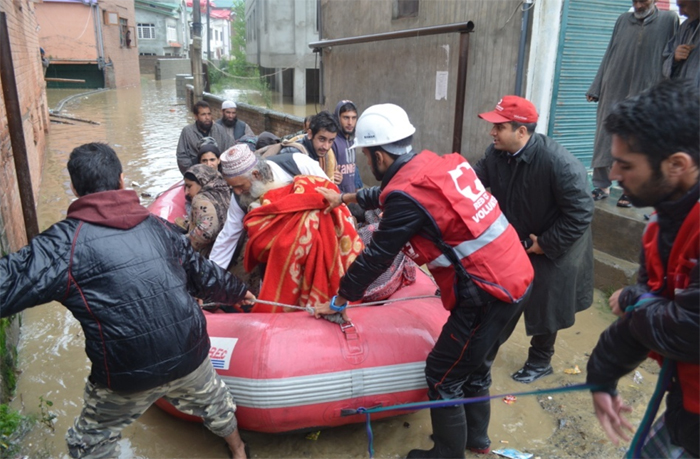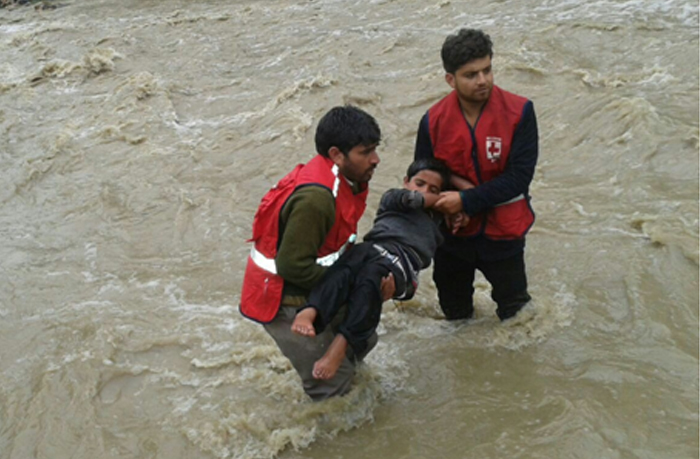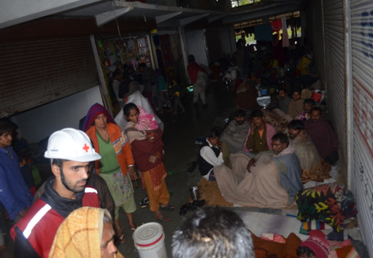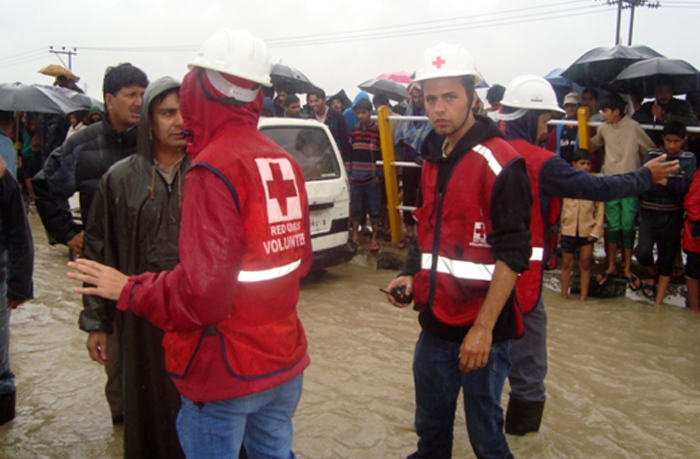|

Incessant rains in the state of Jammu and Kashmir in the past week have broken all the records of the last 60 years. Water levels continue to rise and the state has witnessed more than 100 deaths as well as extensive loss of property. As many as 2,500 villages have been affected while 450 villages are still marooned and a large number of houses and livestock have been completely destroyed. Roads and bridges are damaged, cutting off many areas and rendering them inaccessible.

As the situation continues to remain tense due to the incessant torrential rains, landslides and floods, the Indian Red Cross First Medical Responders (FMRs) and volunteers in the state are aiding rescue and evacuation operations in four of the most affected areas.
 An emergency control room has been set up at the IRCS National Headquarters and Srinagar Branch office where the situation is been continuously monitored. The situation is grim as firm ground on which to put up tents and provide shelter to the evacuees is difficult to locate. Many schools and other institutional buildings are being used as temporary shelters to house those who have been rescued. An emergency control room has been set up at the IRCS National Headquarters and Srinagar Branch office where the situation is been continuously monitored. The situation is grim as firm ground on which to put up tents and provide shelter to the evacuees is difficult to locate. Many schools and other institutional buildings are being used as temporary shelters to house those who have been rescued.
As part of the relief efforts, items like tents, tarpaulins, kitchen sets, woollen blankets and windcheaters worth approximately INR 1.6 crores has been dispatched to the state by the IRCS National headquarters.

The state has trained human resource in the form of members of the National Disaster Response team and National Disaster WatSan Response team. Further the FMR programme that was launched in the state last year, has also paid rich dividends as volunteers belonging to the local community have been trained to provide First Aid, distribute relief supplies, pitch shelters and most importantly provide Psycho-social support to the victims of disasters.
As part of the capacity building exercise the IRCS National headquarters along with its movement partners, has supported the state branch to train more than 600 such FMRs across the state. Every FMR is now acting as a group leader and has been successful in immediately mobilizing other volunteers from the community to help in the rescue operations. Besides direct rescue and relief the Red Cross teams are actively involved in mobilizing community resources and support to lessen the impact of lack of essential services as the situation needs all out response from all the agencies including people to cope with the alarming situation.
 Many more trained volunteers are joining the rescue and evacuation operations to help more and more people in need. Relief supplies have been arranged for a considerable no of evacuees. Many more trained volunteers are joining the rescue and evacuation operations to help more and more people in need. Relief supplies have been arranged for a considerable no of evacuees.
The IRCS NHQ has, as part of the community based disaster preparedness activity, been implementing the FMR programme as part of the disaster management strategy in 19 states that are highly disaster prone, through the state Red Cross branches.
As Ms Roma Wani, General Secretary of the IRCS Jammu & Kashmir Branch says, it is the timely training of the FMRs that is now coming in handy. |